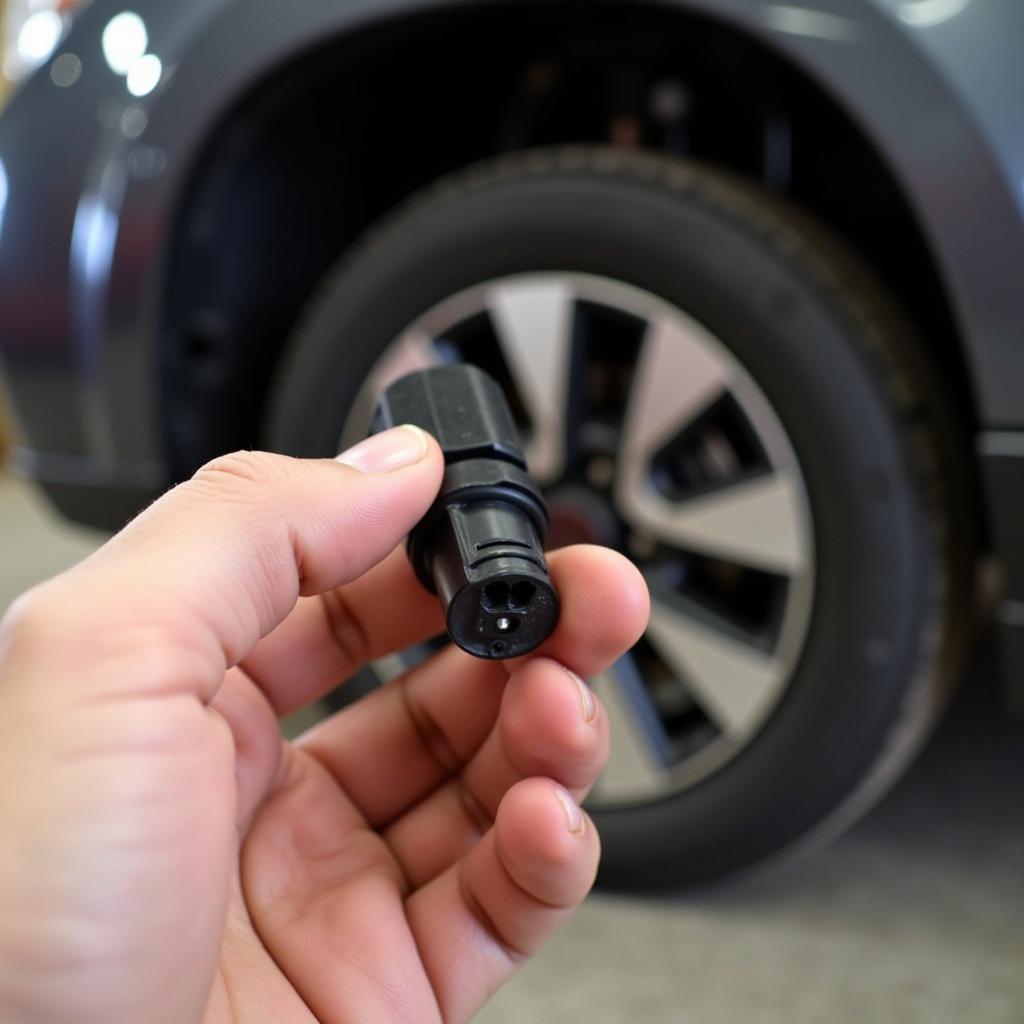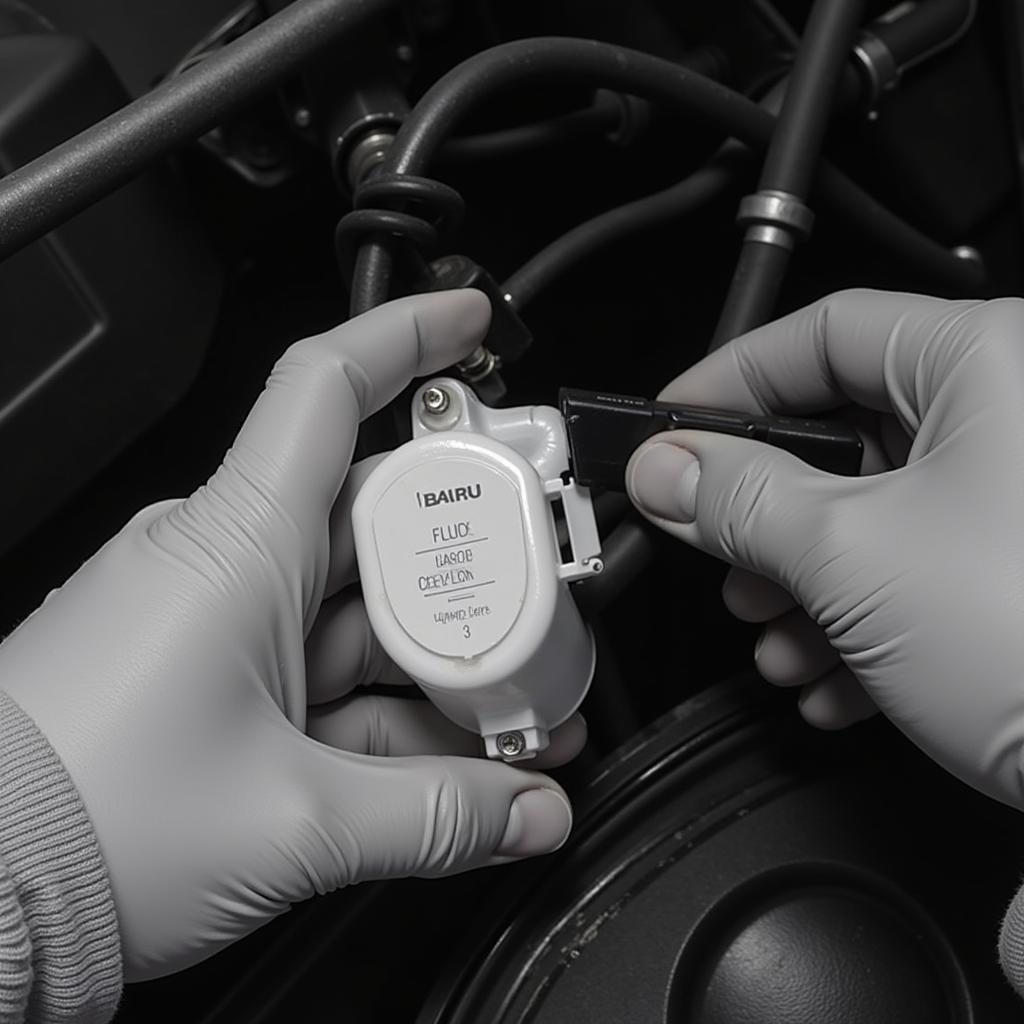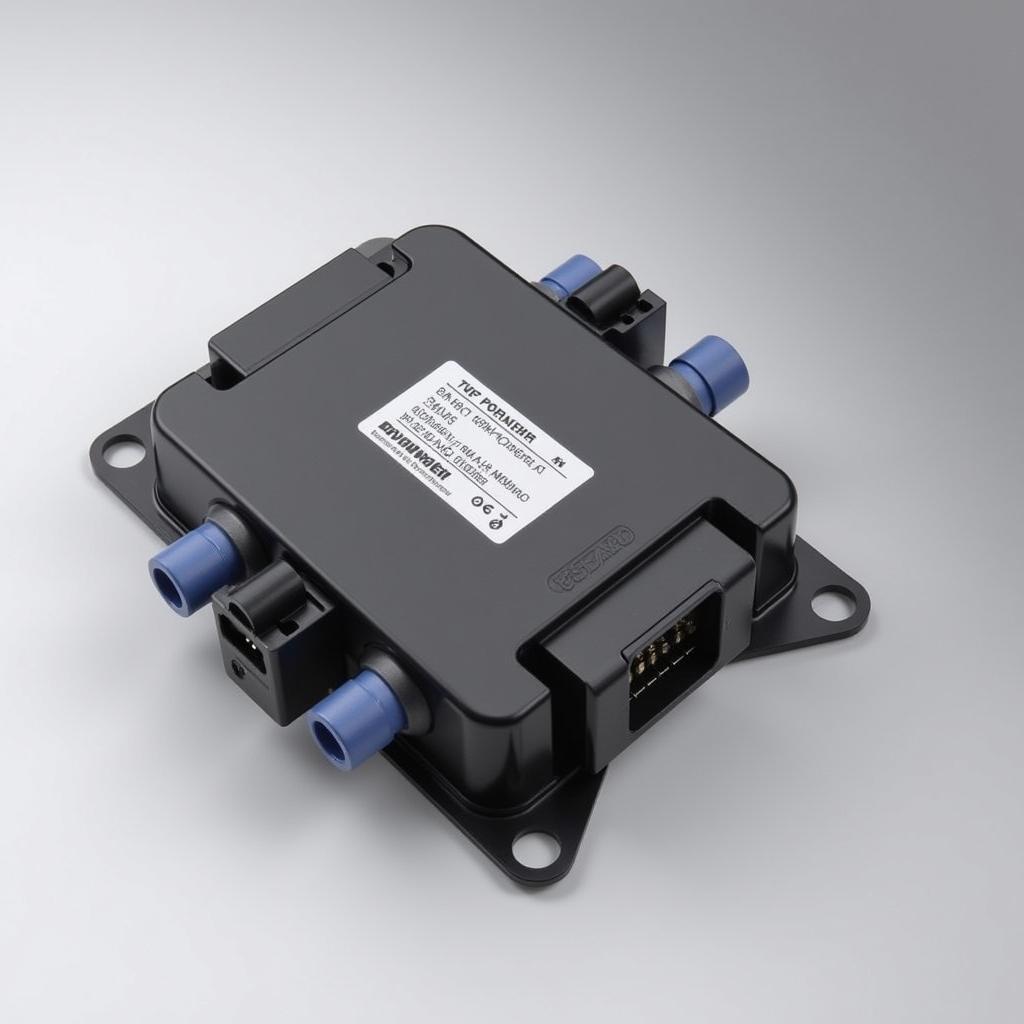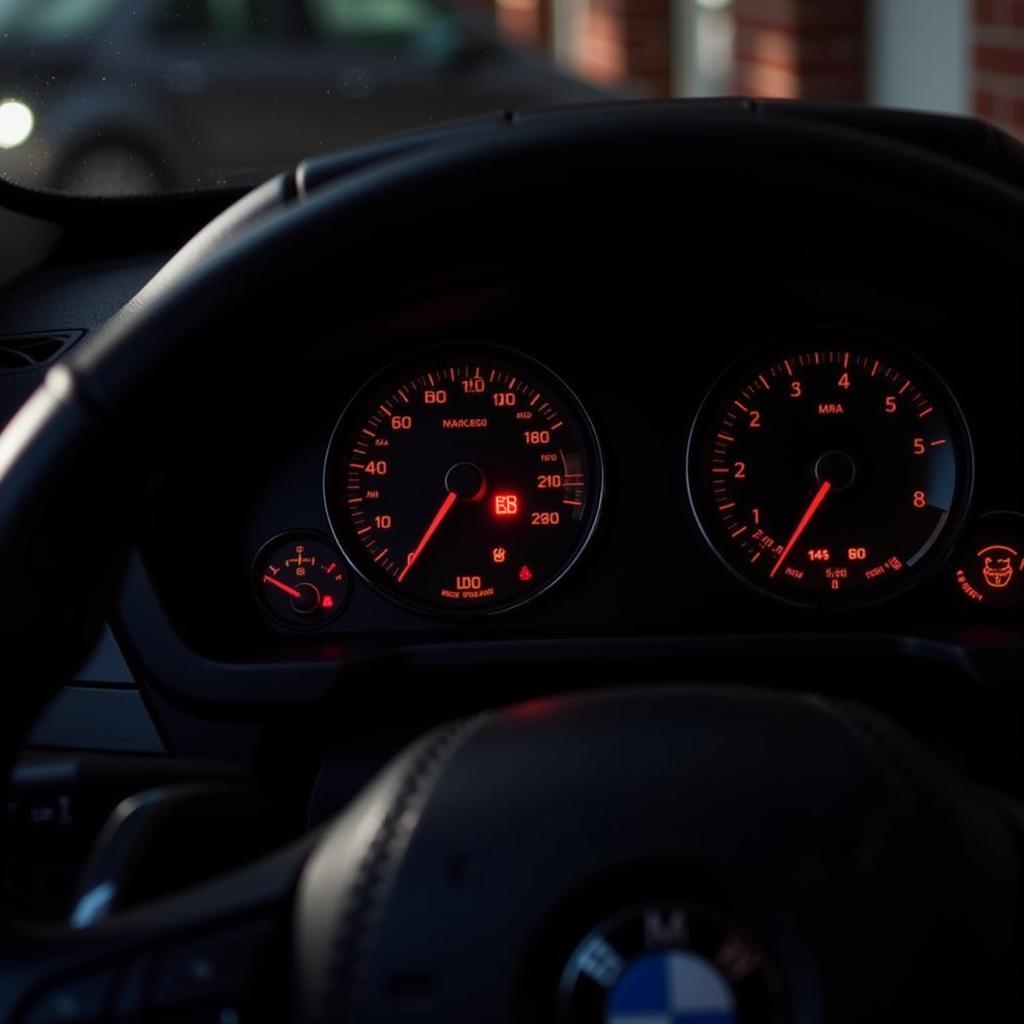Driving down the road and suddenly, you see a warning light related to your Subaru Forester’s ABS brakes illuminate. That sinking feeling in your gut is understandable. What does it mean? Is it safe to keep driving? How much will it cost to fix? This article dives deep into the common causes of Subaru Forester ABS brake warning messages, how to diagnose the issue, and the potential solutions.
Let’s start by understanding that the ABS (Anti-lock Braking System) is a crucial safety feature. It prevents your wheels from locking up during hard braking, allowing you to maintain steering control and potentially avoid an accident.
Common Causes of ABS Brake Warning Messages in Subaru Forester
There are a few culprits behind that ominous warning light. Let’s break them down:
- Faulty Wheel Speed Sensor: Your Subaru Forester uses sensors to monitor the speed of each wheel. If a sensor is dirty, damaged, or malfunctioning, it can trigger the ABS warning light.
- ABS Module Issues: The ABS module is the brain of the system. Over time, it can experience electrical problems or internal failures, leading to a warning message.
- Low Brake Fluid Level: Brake fluid is essential for proper braking system function, including the ABS. If the fluid level is low, it could indicate a leak or worn brake pads, which can trigger the warning light.
- Brake Pad Sensor Malfunction: Your Forester has sensors that monitor brake pad wear. A failing sensor can send a false signal, triggering the ABS warning, even if your brake pads are fine.
 Subaru Forester ABS Sensor
Subaru Forester ABS Sensor
Diagnosing Your Subaru Forester’s ABS Brake Warning
While some DIY enthusiasts might be comfortable troubleshooting the issue themselves, keep in mind that brake systems are critical safety components. It’s often best to consult with a qualified mechanic, especially if you’re unfamiliar with automotive systems.
Here’s a general approach to diagnosing the problem:
- Read the Diagnostic Trouble Codes (DTCs): Using a specialized diagnostic scanner (available at most auto parts stores or mechanic shops), you can read the specific error codes stored in your Subaru Forester’s computer. These codes provide valuable clues about the nature of the ABS issue.
- Check the Brake Fluid: This is a simple but crucial step. Locate your Forester’s brake fluid reservoir (refer to your owner’s manual if needed) and check the fluid level. If it’s low, there’s likely a leak or your brake pads are excessively worn.
- Inspect the Wheel Speed Sensors: Visually inspect each wheel speed sensor for any signs of damage, debris, or corrosion.
- Test the ABS Module: Testing the ABS module requires specialized equipment and expertise. A mechanic can determine if the module is functioning correctly or needs replacement.
 Checking Subaru Forester Brake Fluid
Checking Subaru Forester Brake Fluid
Solutions for Subaru Forester ABS Brake Warning Messages
Once you’ve identified the root cause of the problem (ideally with the help of a mechanic), you can explore the appropriate solutions:
- Replacing Faulty Components: If a wheel speed sensor, brake pad sensor, or another component is faulty, replacement is usually the most straightforward fix.
- Repairing Wiring Issues: Sometimes, a simple wiring problem is the culprit. A mechanic can inspect the wiring harness for any damage or loose connections.
- Addressing Brake Fluid Leaks: If you suspect a brake fluid leak, it’s essential to address it immediately. Driving with a brake fluid leak is incredibly dangerous. A mechanic can identify the source of the leak and repair it.
- Reconditioning or Replacing the ABS Module: If the ABS module is faulty, it might be possible to recondition it (which involves repairing or replacing internal components). However, in some cases, complete replacement of the module might be necessary.
Preventing Future ABS Brake Issues
Prevention is always better than cure. Here are some tips to help prevent future ABS brake problems in your Subaru Forester:
- Regular Brake System Inspections: Have your brakes inspected at least once a year, or more frequently if you drive in harsh conditions.
- Timely Brake Fluid Flushes: Brake fluid should be flushed and replaced according to your Subaru Forester’s maintenance schedule.
- Use High-Quality Brake Pads: Opt for high-quality brake pads from reputable brands.
When Should You Contact a Mechanic?
If your Subaru Forester’s ABS warning light comes on, it’s best to err on the side of caution and contact a qualified mechanic as soon as possible. Remember, your brakes are a critical safety system, and any issues should be addressed promptly.
 Subaru Forester ABS Module
Subaru Forester ABS Module
Conclusion
Experiencing an ABS brake warning message in your Subaru Forester can be unnerving. However, understanding the common causes, diagnosis, and potential solutions can help you navigate the situation safely.
Remember, prioritize your safety and that of your passengers by addressing the issue promptly and consulting with a qualified mechanic for a thorough diagnosis and repair.

